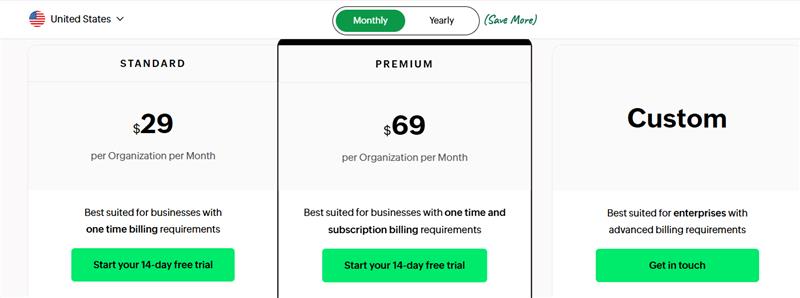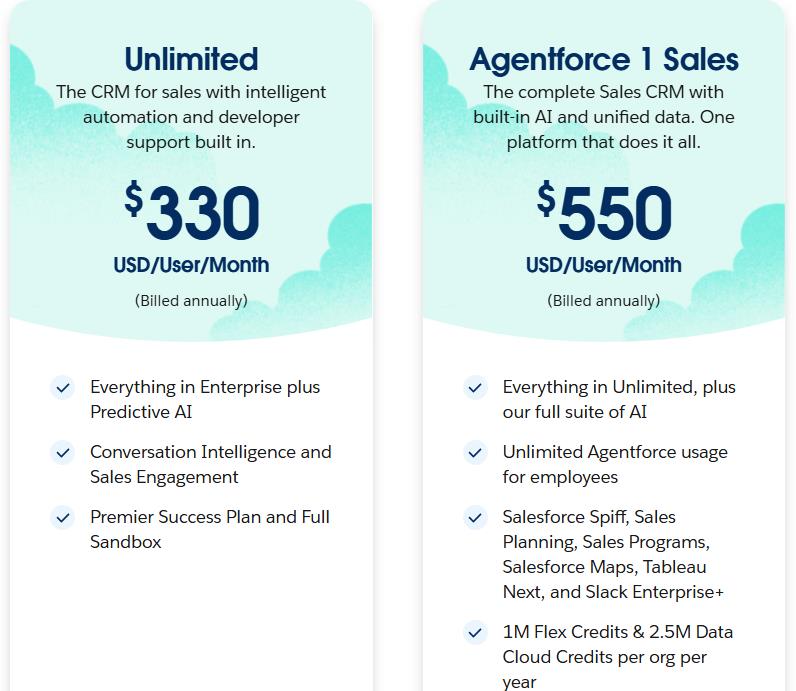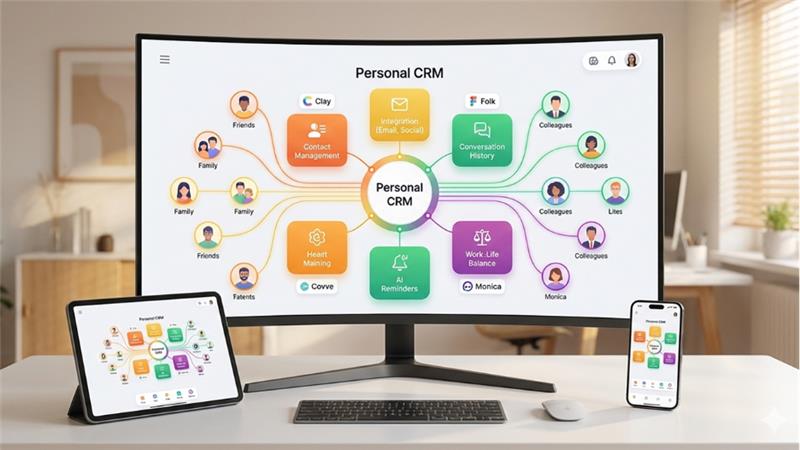We live in a digital world where data is now as important as money. And, when it comes managing customer data, businesses have a tool called customer relationship management. Utilizing such an advanced tool allows businesses to manage and track everything. It covers contact management, lead management, marketing, sales forecasting, as well as customer service and support. We can confidently assume that businesses are now no longer using rolodexes, cabinets full of customer-related paperwork, and hand-written notes on future sales prospects.
A lot of businesses do not even rely on spreadsheets as it takes a lot of unproductive hours and often leads to errors. Essentially, businesses now have powerful CRM software that can streamline data management work and save thousands of hours. And, when it comes to top CRMs for SMEs, two CRMs stand apart from the rest: Zoho and Salesforce. While the former is the right option for startups, the latter is the most comprehensive tool for small businesses.
In short, both of the platforms are reliable and highly rated in the market. They both are purpose-built for diverse use cases and application areas. Furthermore, they can be easily scaled as well to adjust to your specific requirements as your business grows. Yet, if businesses have to choose one over the other, which one should they go with? Let us try to answer that question comprehensively in this Zoho vs Salesforce guide. In this comprehensive blog, you will know everything from features to pricing.
Zoho Vs Salesforce: An Overview
Choosing between Zoho and Salesforce ultimately boils down to two factors: your budget and your requirements. You will have to figure out which software can help you not only in the coming year but also in the next five years for a more economical price. Salesforce is a flexible CRM solution with a vast array of features and integrations that number thousands. However, it must be noted that the most premium Zoho plan comes at a lesser price than the most affordable Salesforce plan. Furthermore, Zoho is less complex than Salesforce, which makes it a preferable option for beginners.
On the other hand, you do need dedicated IT support in order to leverage the Salesforce effectively. A dedicated IT professional can supervise your daily CRM requirements, especially if your workflows are data heavy. However, that being said, there is no question that Salesforce is the most trusted option for enterprises. It is a sort of a gold standard for businesses looking for great integration depth, high-level customization, and unparallel scalability.
Zoho vs Salesforce: Detailed Feature Comparison
When assessing the right option between Zoho and Salesforce, getting an in-depth understanding of their feature list is vital. Both platforms provide a comprehensive range of CRM functionalities. However, they differ in terms of usability, scalability, and depth.
| Feature | Zoho CRM | Salesforce CRM |
| User Interface | Intuitive and neat; suitable for beginners. | Can be customized; requires a detailed learning curve. |
| Automation | Basic macros, workflows, and blueprints. | Complete flow automation; Sophisticated process builder, |
| Personalization | Fields, modules, and personalized layouts. | Deep customization with Apex and Lightning components |
| Reports & Analytics | Standard reports and dashboards. | Sophisticated AI-driven insights through Einstein Analytics. |
| Integration | Seamlessly incorporates external services as well as Zoho applications. | Numerous third-party integrations through AppExchange. |
| Mobile App | User-friendly and lightweight. | Rich with a diverse range of features such as offline capability. |
Main Points to Know:
- Zoho is the best option for limited IT resources and startups.
- Salesforce is a recommendable choice for large corporations requiring enterprise-level customization and new businesses in the growing stage.
Zoho Vs Salesforce: Pricing Difference
Budget is a crucial factor that can shape your decision when choosing between Zoho or Salesforce. The pricing plans and options significantly differ, especially when scaling numerous features and users.
Zoho CRM Plans (USD/user/month):
- Free plan for up to 3 users
- Standard: $29 per organization per month.
- Professional: $69 per organization per month.
- Enterprise: Custom pricing
Salesforce Sales Cloud Plans (USD/user/month):
- Starter Suite: $25/USD/Per User/Month
- Pro Suite: $80/USD/User/Month
- Enterprise: $165/USD/User/Month
- Unlimited: $330/USD/User/Month
| Plan Tier | Zoho CRM | Salesforce CRM |
| Entry-Level | Free (3 users) | $25 |
| Mid-Tier | $23–$40 | $80–$165 |
| Top-Tier | $52 | $330 |
Summary:
- Zoho CRM wins in affordability and simplicity.
- Salesforce is priced higher but offers unmatched enterprise features.


Fig: Zoho CRM Free Edition

Fig: Salesforce pricing plans for US businesses

Fig: Salesforce pricing plans: Unlimited and Agentforce 1 Sales
User-friendliness and Implementation
User experience is a vital point in the Zoho vs Salesforce comparison. The initial learning curve and efforts required for implementation change considerably between the two renowned platforms.
Zoho CRM:
- Simple User Interface
- Simple deployment.
- In-built tutorials and wizards.
Salesforce CRM:
- More complicated interface.
- Needs professional-grade setup.
- Comprehensive training environment but time-taking onboarding.
Businesses who are not operating with an in-house IT department might find Zoho quite simple to integrate and use. For operations that are data-heavy with personalized workflows, Salesforce ensures the requisite control and power.
Note: Alternatively, if your priority is user-friendliness and in-built marketing platforms, you can consider exploring the detailed Zoho vs HubSpot comparison as well.
Service & Support Comparison
The quality of support that businesses get impacts the overall CRM success and utilization.
| Category of Support | Zoho | Salesforce |
| Email Support | Available in all subscription plans. | Available in all paid plans. |
| Chat Support | Available in most tiers | Accessible in premium pricing plans. |
| Phone Support | Available add-on | Available with a higher pricing plan. |
| Onboarding Assistance | Paid services of consulting. | Onboarding specialists and partners. |
| Community | Forums and a growing community. | Large network of certified experts. |
Salesforce provides more customized and scalable support, which is specifically valuable for MNCs and large corporations. However, Zoho is a suitable choice for SMEs and organizations with less complex CRM requirements.
Capabilities of Integration
Third-party integrations determine how effectively your CRM software mixes well with your tech stack.
Zoho CRM:
- Smooth with all Zoho applications.
- Integrates with Outlook, Gmail, Zapier, Slack, etc.
- Approximately 300+ integrations.
Salesforce CRM:
- Accessibility to more than 5000 platforms through AppExchange.
- Operates seamlessly with HRMS, ERP, and custom Application Programming Interfaces.
- Highly personalizable via REST API and Apex.
For streamlined ecosystems, Zoho offers all the standard features. For more comprehensive environments, Salesforce is developed to deeply integrate with crucial platforms.
Global Suitability and Flexibility in Deployment
Businesses existing in regions like Australia, US, Canada, and Europe give special priority to compliance and data security. Furthermore, multinational companies can also take language/localization into account.
Zoho CRM:
- There are data centers in European Union, United States, and Australia.
- The platform is GDPR compliant.
- It provides region-specific pricing.
Salesforce CRM:
- Adherence to regulations like GDPR, HIPAA, SOC 2, ISO, etc.
- Available in numerous languages.
- Widespread and robust network of partners in all major continents.
Salesforce ensures enterprise-level global preparedness, while Zoho is also a cost-effective and viable option for localized processes.
Data Privacy & Security
Security is an important aspect of any CRM-related decision, especially as it is a tool that manages personal or financial information.
| Security Feature | Zoho CRM | Salesforce CRM |
| Encryption of data. | At rest as well as in transit. | Enhance options as well as full encryption. |
| Role-driven accessibility | Yes | Yes |
| Logging of activities | Standard logging | Sophisticated accompanied by Shield add-on. |
| Certifications | ISO 27001, SOC 2 | ISO 27001, SOC 2, PCI DSS, HIPAA |
Both the CRM software provides robust security foundations. However, Salesforce has a more versatile and longer list of options for regulated industries.
Which CRM Is the Right Option for You?
A choice between Zoho vs Salesforce also revolves around several business-related factors:
| Business Scenario | Recommended CRM |
| Small teams who are conscious about their budget | Zoho CRM |
| Enterprises who require detailed and complete Customization | Salesforce CRM |
| Organizations existing in regulated industries. | Salesforce CRM |
| Startups who work with no IT support. | Zoho CRM |
| Multinational companies | Salesforce CRM |
For teams working with simpler workflows, Zoho can be a sufficient option. However, businesses that expect mergers, growth, or the complex journeys of their clients must choose Salesforce as it justifies the investment.
Conclusion
In detailed Zoho vs Salesforce, it is necessary to consider the lasting implications as well. Zoho CRM ensures an affordable, simple, and effective CRM platform for businesses having less complicated requirements. It is a perfect option for growing startup companies and teams that tend to avoid extensive configuration.
On the contrary, Salesforce CRM is purpose-built to simplify scalability. Though the platform is slightly complex, it ensures enterprise-level customization, architecture, and integration. It is a lot more effective option for large or medium enterprises, in particular in industries where automation, compliance, and deep insights are significant. For businesses focusing on lasting growth and resources that facilitate it, Salesforce can prove to be a smart investment.
You can also explore open-source CRMs like SuiteCRM and SugarCRM and enhance them with advanced plugins. Furthermore, choosing OutRightCRM can also be a beneficial option for SMEs as it renders the same professional-grade features at a much more economical price.



